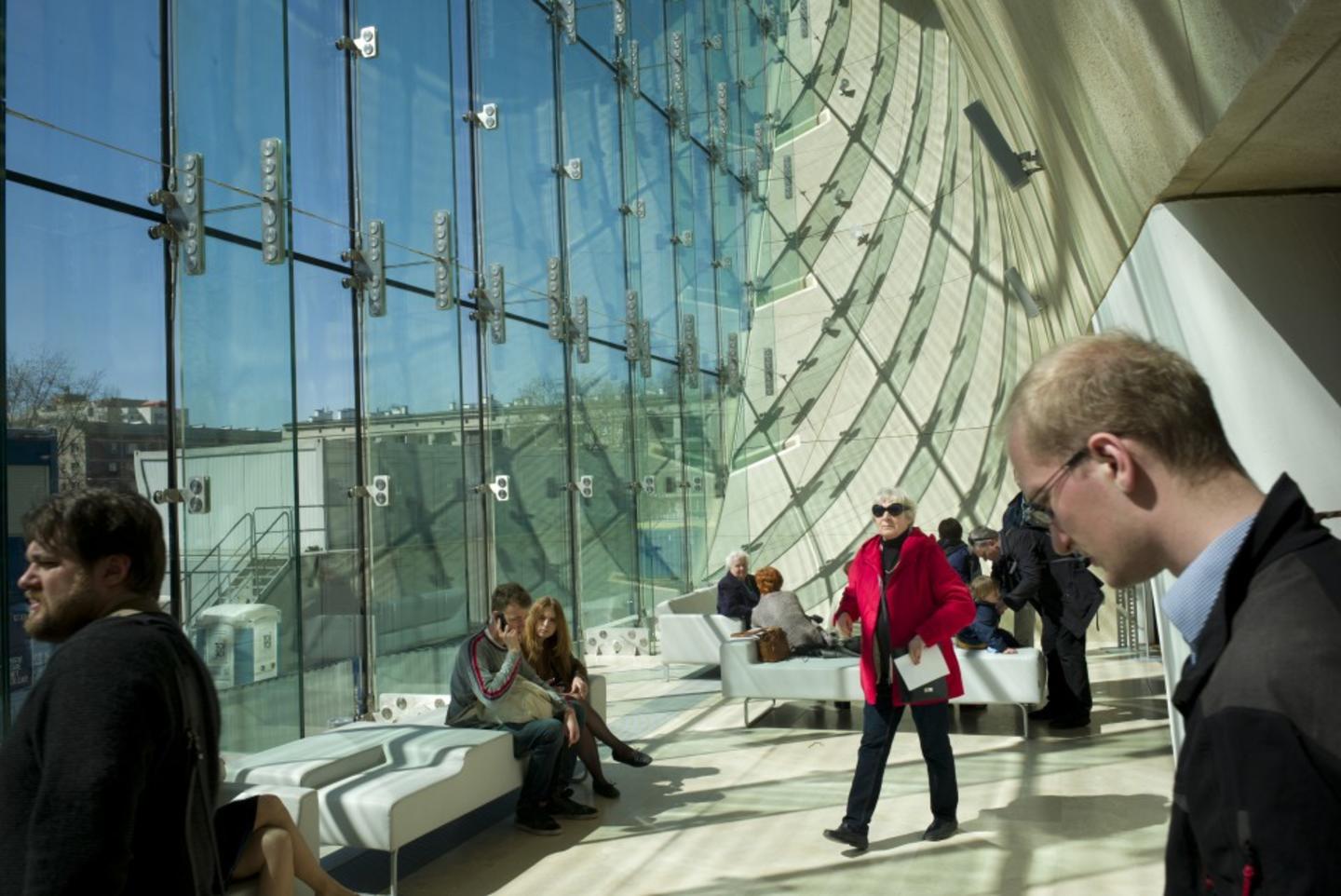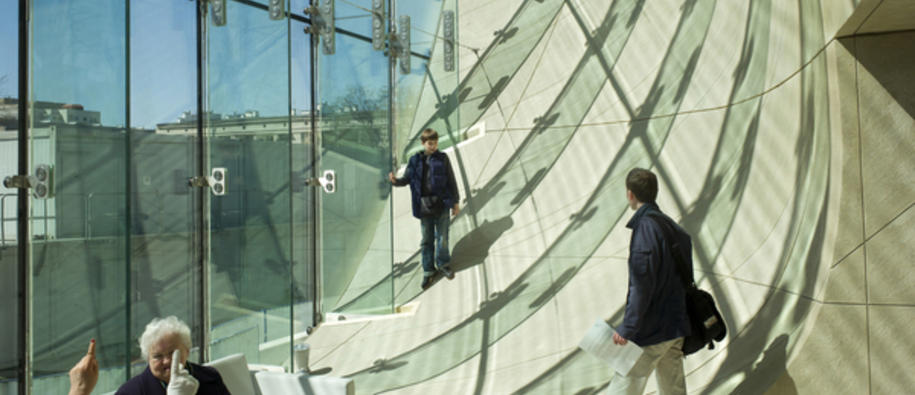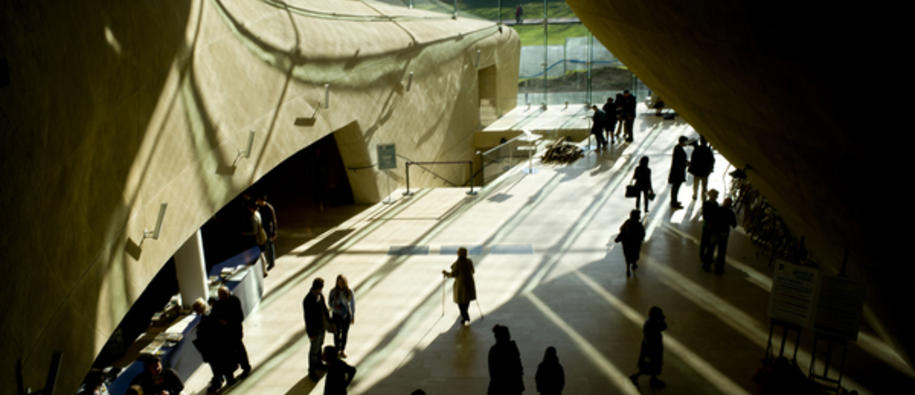The museum’s core exhibition takes guests on a narrative journey exploring the development of Jewish culture from the beginning of Jewish settlement in Poland up until today. The opening of the exhibition is accompanied by the Museum Open Days – a two day programme filled with workshops, film screenings and performances – including an educational programme supported by Iceland, Liechtenstein and Norway through the ‘Jewish Cultural Heritage’ project.
The project supports the Museum of the History of the Polish Jews’ educational and cultural program for 2013 – 2016. The Museum, located in the former heart of Jewish Warsaw, opened its doors in 2013 in an effort to increase the knowledge of Jewish heritage in Poland by highlighting the country’s rich Jewish history and culture through a variety of events, exhibitions, workshops, performances and lectures.
The Grants contribute more than €2.5 million to the ‘Jewish Cultural Heritage’ project under the Polish ‘Conservation and Revitalisation of Cultural and Natural Heritage’ programme.
Promoting tolerance
Implemented in partnership with several Norwegian organisations, the project aims to promote tolerance through a range of educational activities. The Norwegian Centre for Studies of the Holocaust and Religious Minorities (HL-Centre) is the lead partner and coordinates the participation of the Oslo Jewish Museum, the Falstad Centre, the European Wergeland Centre, and the Jewish Museum in Trondheim.
“The project is important for many reasons. Poland has a unique position in Europe in terms of Jewish history and it is an important task to carry out research on this topic and to communicate this part of history to a broad audience,” explains Vibeke Moe, Project Coordinator and Researcher at the HL-Centre, adding that the project’s significance for modern society is of no less value.
“The contemporary and educational aspects of the project are addressing some of the most important questions in our time regarding how we can learn to live together in a diverse and pluralist society. This also involves the combating of group focused enmity, and especially anti-Semitism.”
Engaging students and teachers through history and culture
The project engages children, young people and teachers through diverse activities, including establishing a Museum on Wheels and virtual educational platforms; an oral history project investigating minority-majority relations in Poland and Norway; as well as study visits for Polish and Norwegian students and teachers.
Moe notes that the project has been off to a good start. “Of course, the project is still on-going and results have not been presented yet, but the initial response has been very positive,” Moe says, highlighting exchanges between Norwegian and Polish schools and teachers as a particularly good example:
“The schools have been very positive about this project. One of them has even created a larger interdisciplinary project involving the whole school.”
Growing through cooperation
Moe underlines that not only does the project present a unique opportunity to research Polish Jewish cultural heritage and the connection Norwegian Jewish history has to Poland; it also helps the participating institutions to grow as organisations:
“The participation gives us a valuable opportunity to create contact with experts and colleagues in Poland. This is both of professional and institutional value and a benefit that will last even after the project is completed.”
Click here to find the programme of the Museum Open Days
Read more about the 'Jewish Cultural Heritage' project
Read more about the Grants work supporting Jewish Cultural Heritage


